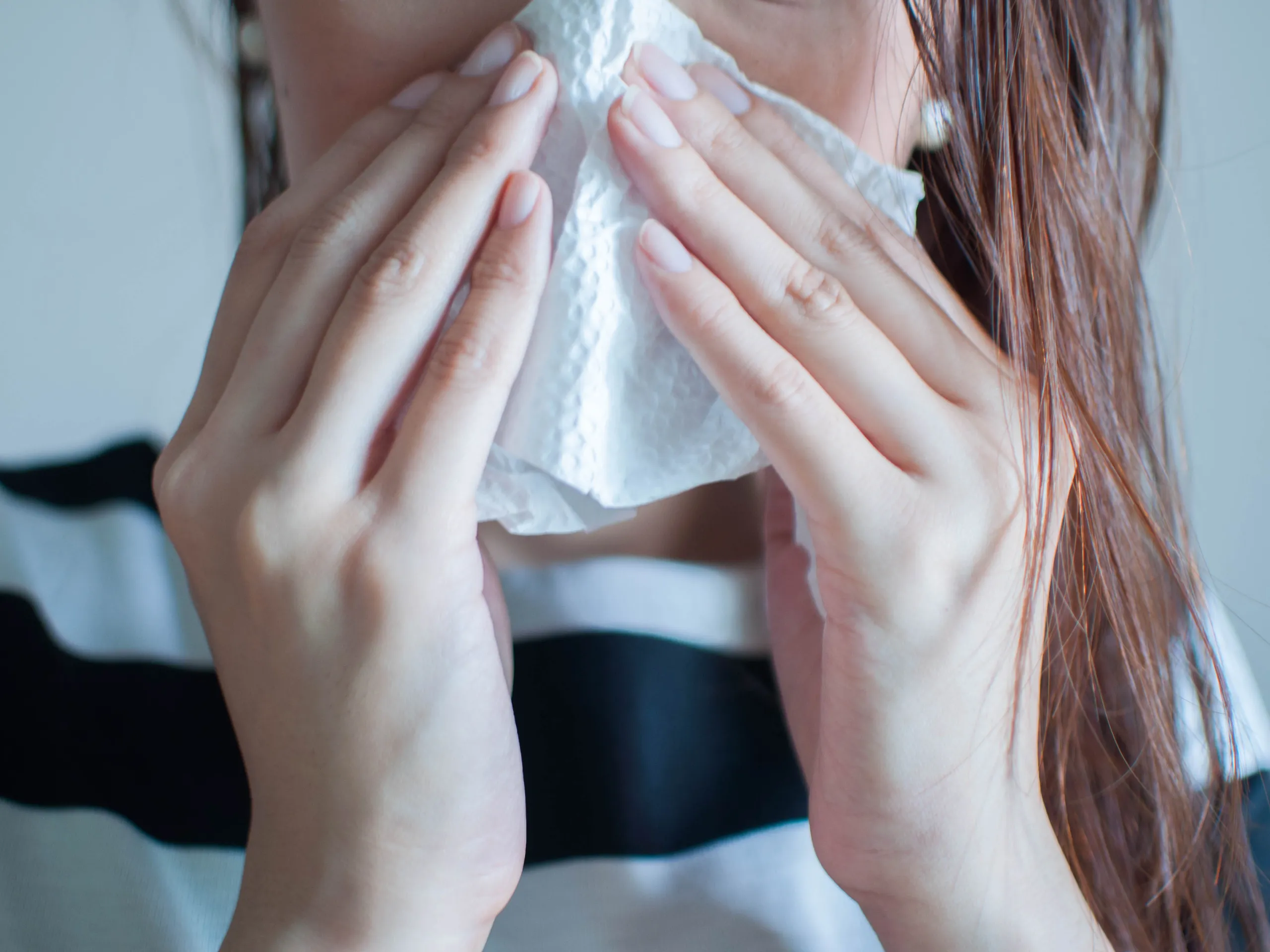Yes, there are several excellent medicines for severe allergies that can give you real relief. The best medicine depends on your specific symptoms, but doctors often recommend starting with nasal steroid sprays like Flonase or Nasacort for daily control, combined with antihistamines like Zyrtec or Allegra for quick symptom relief.
This guide covers all the top treatment options for severe allergies. You’ll learn about different types of medicines, when to use them, and how to work with your doctor to find what works best for you.
Understanding Severe Allergies and How They Work
What Makes Allergies “Severe”
Severe allergies go way beyond a little sniffling. When your body mistakes harmless substances like pollen for threats, it creates antibodies that release chemicals like histamine, causing allergy symptoms.
Severe allergy symptoms include:
- Constant stuffy or runny nose
- Eyes that water and itch all the time
- Trouble breathing through your nose
- Sneezing fits that won’t stop
- Headaches from sinus pressure
- Feeling tired all the time
Why Regular Medicines Don’t Always Work
Nearly one-third of U.S. adults have a diagnosed allergy, but many people find that basic over-the-counter medicines just don’t cut it for severe symptoms. That’s when you need stronger treatments that target allergies at their source.
Top Medicine Categories for Severe Allergies
Nasal Steroid Sprays: The Gold Standard
Experts recommend trying nasal steroids before other allergy medicines, as they tend to be the most effective option. These sprays work by reducing inflammation in your nose and sinuses.
Best Over-the-Counter Options
- Flonase (fluticasone) – Works great for daily use
- Nasacort (triamcinolone) – Less likely to cause nosebleeds
- Rhinocort (budesonide) – Most effective for year-round allergies
How to Use Them Right
Start using nasal steroid sprays 2-4 weeks before allergy season begins. They may take up to several weeks of daily use for full benefits, but they’re worth the wait.
What to Expect
You might notice a slight improvement within a few days, but the real benefits come after using them consistently for weeks. Some people get minor nosebleeds, but this usually stops as your body gets used to the medicine.
Second-Generation Antihistamines: Fast Relief
When you need quick symptom relief, these antihistamines work without making you sleepy.
Top Choices for Adults
- Allegra (fexofenadine) – Least likely to cause drowsiness
- Zyrtec (cetirizine) – Tends to start working slightly faster than others
- Claritin (loratadine) – Good for people who get drowsy easily
- Xyzal (levocetirizine) – Longer-lasting relief
How They Work
Antihistamines block the effects of histamine in your body, helping stop allergic reactions. They work best when you take them before you’re exposed to allergens.
Combination Medicines: Double Action
Sometimes you need both a decongestant and an antihistamine. These medicines combine both:
- Zyrtec-D – Zyrtec plus pseudoephedrine
- Claritin-D – Claritin plus pseudoephedrine
- Allegra-D – Allegra plus pseudoephedrine
Important: Decongestants can raise your blood pressure and heart rate, so talk to your doctor if you have heart problems.
Advanced Treatments for Severe Cases
Prescription Nasal Sprays
When over-the-counter options aren’t enough, your doctor might prescribe stronger nasal sprays:
Prescription Steroid Sprays
- Nasonex (mometasone) – May be the most effective for seasonal allergies
- Veramyst (fluticasone furoate) – Good for people with year-round allergies
- Omnaris (ciclesonide) – Less likely to cause side effects
Antihistamine Nasal Sprays
- Astepro (azelastine) – Works within minutes
- Patanase (olopatadine) – Good for people who can’t take pills
Biologic Medicines: The Newest Treatment
For people with the most severe allergies, biologic medicines can be life-changing. These medicines work by targeting specific parts of your immune system.
Xolair (Omalizumab)
Xolair is used to treat moderate to severe asthma and chronic hives. In 2024, Xolair became the first FDA-approved medication to reduce allergic reactions to multiple foods after accidental exposure.
How it works: Blocks IgE antibodies that trigger allergic reactions Given: Injection every 2-4 weeks at doctor’s office Best for: People with allergic asthma or severe food allergies
Dupixent (Dupilumab)
Dupixent is used to treat moderate-to-severe atopic dermatitis (eczema), asthma, and chronic rhinosinusitis with nasal polyps.
How it works: Blocks inflammation proteins called interleukins Given: Self-injection at home every 2 weeks Best for: People with severe eczema, asthma, or sinus problems
Allergy Shots: Long-term Solution
Allergy shots offer long-term relief from allergy symptoms and take 3 to 5 years to complete. They work by gradually training your immune system to tolerate allergens.
How Allergy Shots Work
- Testing Phase – Skin or blood tests identify your specific allergens
- Build-up Phase – Weekly shots with increasing allergen doses for 3-6 months
- Maintenance Phase – Monthly shots for 3-5 years
Success Rates
Immunotherapy can work well for people with allergies to pollen, pets, dust, bees, and asthma. Many people see big improvements and can reduce their daily medicines.
Special Medicines for Specific Symptoms
For Itchy, Watery Eyes
Over-the-Counter Eye Drops
- Zaditor (ketotifen) – No prescription needed
- Alaway (ketotifen) – Works for up to 12 hours
- Pataday (olopatadine) – Available over-the-counter now
Prescription Eye Drops
For severe eye symptoms, doctors can prescribe stronger drops like Pataday or Alrex.
For Severe Congestion
Decongestant Nasal Sprays
Afrin (oxymetazoline) gives fast relief but should only be used for two to three days at a time to avoid rebound congestion.
Oral Decongestants
Sudafed (pseudoephedrine) helps with sinus pressure but requires ID to purchase and can raise blood pressure.
For Chronic Sinus Problems
Sinus Rinses
Salt water rinses with products like NeilMed or Neti pots help flush out allergens and mucus. Saline sprays and nasal washes are common natural treatment options to reduce allergy symptoms.
How to Choose the Right Medicine
Start with the Basics
Most doctors recommend this step-by-step approach:
- Try a nasal steroid spray first (Flonase, Nasacort, or Rhinocort)
- Add an antihistamine if needed (Allegra, Zyrtec, or Claritin)
- Consider prescription options if over-the-counter medicines don’t help
- Ask about biologics or allergy shots for severe cases
Consider Your Lifestyle
Think about these factors when choosing:
- How often do you have symptoms? Daily symptoms need daily treatment
- Do you drive or operate machinery? Choose non-drowsy options
- Do you have other health conditions? Some medicines interact with heart or blood pressure drugs
- Can you remember daily medicines? Some treatments are weekly or monthly
Work with Your Doctor
Talk with a healthcare professional to find the treatment that’s best for you. Bring a list of:
- All your symptoms and when they happen
- Medicines you’ve tried and how they worked
- Other health conditions and medicines you take
- Your insurance information
Safety and Side Effects
Common Side Effects
Nasal Steroid Sprays
- Minor nosebleeds (usually temporary)
- Nasal irritation or burning
- Headaches
Antihistamines
- Some drowsiness (even “non-drowsy” types)
- Dry mouth
- Upset stomach
Biologics
- Injection site reactions
- Headaches
- Upper respiratory infections
Important Warnings
The FDA warns that stopping cetirizine (Zyrtec) or levocetirizine (Xyzal) after long-term use may cause severe itching. Talk to your doctor before stopping these medicines if you’ve used them for months or years.
When to Call Your Doctor
Get medical help right away if you have:
- Trouble breathing
- Swelling of face, lips, or throat
- Severe skin reactions
- Chest tightness or pain
Cost and Insurance Coverage
Generic vs. Brand Names
Many excellent allergy medicines are available as generics, which cost much less:
- Generic cetirizine instead of Zyrtec
- Generic loratadine instead of Claritin
- Generic fluticasone instead of Flonase
Insurance Coverage
Most insurance plans cover:
- Basic antihistamines and nasal sprays
- Prescription medicines when over-the-counter options don’t work
- Allergy testing and shots
61% of patients spend less than $300 per year on allergy treatments, but biologics can be expensive without good insurance coverage.
Natural and Complementary Options
Saline Rinses
Regular nose washing with salt water helps remove allergens and reduce inflammation. You can use:
- Neti pots
- Squeeze bottles
- Saline spray bottles
Environmental Controls
Reduce your exposure to allergens:
- Keep windows closed during high pollen days
- Use air purifiers with HEPA filters
- Wash bedding in hot water weekly
- Shower after spending time outdoors
When to Consider Professional Help
See an allergist if:
- Over-the-counter medicines don’t control your symptoms
- You have allergy symptoms more than 4 days per week
- Allergies interfere with sleep or daily activities
- You have frequent sinus infections
- You’re not sure what you’re allergic to
The Future of Allergy Treatment
New Research
Scientists are working on exciting new treatments:
- Better biologic medicines with fewer side effects
- Allergy patches that go on your skin
- New ways to retrain your immune system
Personalized Medicine
Doctors are getting better at choosing the right treatment for each person based on:
- Genetic testing
- Specific allergy patterns
- How you respond to different medicines
Final Thoughts
The best medicine for severe allergies isn’t the same for everyone, but there are excellent options available. Most people do well with a combination of daily nasal steroid sprays and antihistamines as needed. For severe cases, prescription medicines, biologics, or allergy shots can provide life-changing relief.
Don’t let severe allergies control your life. Work with your doctor or pharmacist to find the right treatment plan. With today’s medicines, most people with severe allergies can feel much better and enjoy activities they love.
Remember that finding the right treatment might take some time and experimentation. What works great for your friend might not be perfect for you, and that’s normal. The key is to keep working with your healthcare team until you find relief.
If you’re in the Park City area, visit Greenleaf Pharmacy for personalized advice about allergy medicines and to discuss your options with experienced pharmacists who understand your needs.

